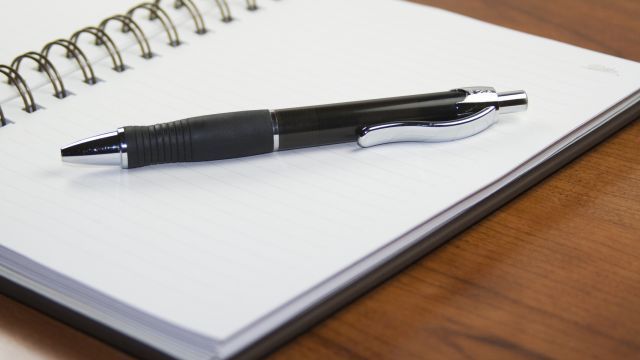
Journaling is usually done for two different reasons. For some, it’s a record of their lives and day-to-day activities. For others, it’s a therapeutic tool used to express emotions and work through challenging or traumatic events or feelings. This second style of writing, sometimes called ‘expressive’ writing, is related to a number of surprising physical and emotional benefits. Here are 5 of them, as well as some guidance on starting to journal on your own.
It Lowers Stress and Anxiety
A study published in Psychotherapy Research found that patients who communicated their emotions through expressive writing experienced greater reductions in stress and anxiety levels than those who didn’t. And another recent study from Behavior Modification showed expressive writing to decrease symptoms related to anxiety, including worry and depression.
Researchers think that journaling reduces stress by providing an outlet where one can effectively sort through and reflect on thoughts and emotions, release negative thoughts and feelings, and express difficult feelings or thoughts in a non-judgmental, open environment.
It Improves Mood and Feelings of Well-Being
Here’s a surprising fact: immediately after people journal about negative feelings and emotions they tend to experience a short-term increase in distress. However, when people continue to write expressively regularly, the practice is linked with improvements in mood and feelings of well-being. So, if you experience an increase in negative feelings immediately after writing about your emotions—don’t be put off by it. The biggest benefits come in the long term.
Their Wounds Heal Faster
And no, we don’t only mean emotional wounds. A 2013 study out of New Zealand tracked the speed of recovery of 49 patients who underwent a biopsy. The study found that the patients who wrote about their feelings for 20 minutes per day for three days before the surgery recovered more quickly than those who did not write about their feelings. The researchers attributed the results to the fact that writing about their feelings about the surgery decreased levels of distress in patients, thus making them heal faster.
It helps manage health conditions and diseases
For those who already suffer from specific health conditions, journaling has been shown to reduce the severity of symptoms tied to those health problems and diseases. For example, people with asthma who journal have fewer asthma attacks, cancer patients who journal report having a more optimistic perspective and an improved quality of life, and AIDS patients who write expressively have higher T cell counts—a marker of a strong immune system.
Stronger Immune System and Better Physical Health All Around
 Other physical health benefits of journaling that have been studied include fewer visits to the doctor, better sleep, reduced blood pressure, improved immune system and improved lung and liver function.
Other physical health benefits of journaling that have been studied include fewer visits to the doctor, better sleep, reduced blood pressure, improved immune system and improved lung and liver function.
Again, researchers attribute most of these benefits from expressive writing’s ability to help people process difficult emotional experiences, thus reducing stress levels—a factor which plays a huge role in both emotional and physical health.
Ready to start journaling and experience the benefits yourself? Heren are a few tips to get you started:
Write whatever you’re feeling at the moment. The benefits of journaling come from being honest with yourself about whatever you’re feeling, and then expressing those feelings. You don’t need to be diplomatic, as you’re only audience is you!
Ignore grammar and punctuation rules. Worrying about whether your spelling is correct or whether you’re putting a comma in the right place will only get in the way of you saying what you need to say. Don’t worry about these details. Again, no one’s grading you.
You only need to spend 15-20 minutes. Most of the studies done on the benefits of expressive writing had subjects write for about 15-20 minutes per day, most days per week. You can write more, but the benefits come even with that relatively short amount of time.
Happy writing!
-The Alternative Daily
Sources:
http://www.ncbi.nlm.nih.gov/pubmed/23804013
http://www.thealternativedaily.com/we-are-all-creative-creatures-harness-this-with-journaling
http://apt.rcpsych.org/content/11/5/338#sec-2
http://mic.com/articles/98348/science-shows-writers-have-a-serious-advantage-over-the-rest-of-us

